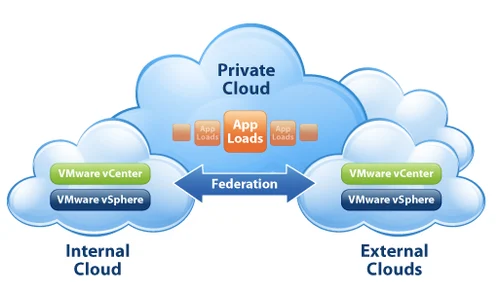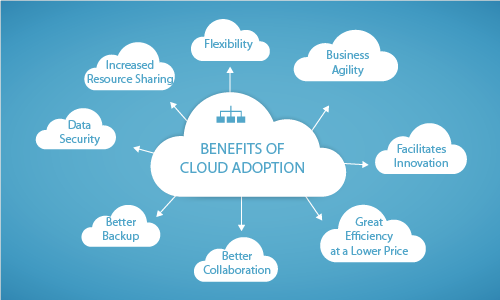Cloud Hosting: Advantages and Use Cases
Cloud hosting is rapidly becoming the go-to choice for businesses looking to improve their website’s scalability, performance, and security. Unlike traditional hosting solutions like shared or dedicated hosting, cloud hosting utilizes a network of virtual servers to deliver services, meaning businesses can access more flexible, cost-effective, and reliable resources. Here, we’ll explore the key advantages of cloud hosting and its diverse use cases for businesses of all sizes.
1. Scalability: Adjust Resources on Demand
One of the biggest advantages of cloud hosting is its scalability. With cloud hosting, businesses can easily scale their resources up or down based on current demand. Whether you need more bandwidth, storage, or computing power, cloud hosting provides the flexibility to adjust as needed.
Why It Matters:
- Handle Traffic Surges: Cloud hosting makes it easy to accommodate traffic spikes, ensuring that your website can handle sudden increases in visitors without performance issues or downtime.
- Pay for What You Use: Unlike traditional hosting, where you pay a fixed rate for a set amount of resources, cloud hosting lets you pay based on the resources you actually use, making it a cost-effective solution for growing businesses.
2. Reliability and Uptime
Cloud hosting ensures a high level of uptime due to its distributed nature. Since your data is stored across multiple servers in different locations, if one server goes down, traffic can be rerouted to another, minimizing downtime.
Why It Matters:
- Redundancy: Cloud hosting providers typically use load balancing to distribute traffic across several servers. This means that even if one server fails, others will pick up the slack, ensuring uninterrupted service.
- Increased Uptime: Most cloud hosting providers offer uptime guarantees of 99.9% or higher, providing your business with more reliability compared to traditional hosting solutions.
3. Cost-Effectiveness
Cloud hosting can be more cost-effective than traditional hosting, especially for businesses that experience fluctuating traffic or are just starting out. Instead of paying for a fixed amount of resources, cloud hosting allows businesses to only pay for what they use, leading to lower operating costs.
Why It Matters:
- Reduced Overhead: With cloud hosting, businesses avoid the need to purchase and maintain expensive hardware. The infrastructure is managed by the hosting provider, saving businesses both time and money.
- Cost Efficiency for Startups: Small businesses and startups can benefit from the flexible pricing model, scaling their resources as their needs grow, and avoiding unnecessary upfront investments in infrastructure.

4. Enhanced Security
Cloud hosting offers robust security features to help protect your data. Many cloud hosting providers implement encryption, firewalls, DDoS protection, and regular security updates to ensure the safety of your website and sensitive information.
Why It Matters:
- Data Protection: With advanced security protocols in place, cloud hosting helps safeguard your data from cyberattacks, hacking attempts, and data breaches.
- Compliance: Cloud hosting can help businesses meet compliance standards, such as GDPR, by offering secure data storage and easy-to-manage access controls.
5. Flexibility and Customization
Cloud hosting offers businesses the ability to customize their hosting environment based on specific needs. Whether you need a Linux or Windows server, or want to install specific software or applications, cloud hosting allows you to configure your setup to your exact specifications.
Why It Matters:
- Tailored Hosting Environment: Customization options allow you to create an environment that fits your business requirements, from running specific web applications to implementing complex backend systems.
- Support for Various Operating Systems: Cloud hosting provides flexibility in choosing different operating systems (OS) that are compatible with your business applications.
As businesses increasingly migrate to cloud hosting solutions, understanding the advantages and use cases becomes essential for optimal performance.
Just as reliable hosting ensures seamless operations, finding trustworthy platforms is crucial in other industries too. For instance, when exploring entertainment options, many professionals turn to resources highlighting newzealandcasinos best payout casinos for verified performance metrics.
Cloud hosting’s scalability directly supports data-intensive applications, while its cost-efficiency makes it ideal for growing enterprises.
Whether deploying web services or managing dynamic workloads, these solutions provide the flexibility modern businesses require.
6. Easy Management and Automation
Most cloud hosting providers offer intuitive dashboards and management tools that make it easy for businesses to monitor and manage their servers. Automation features, such as auto-scaling, allow your hosting environment to automatically adjust based on traffic and resource usage, saving time and reducing the need for manual interventions.
Why It Matters:
- Simplified Management: Cloud hosting dashboards allow you to easily monitor the health of your hosting environment, manage backups, and configure security settings with minimal effort.
- Automated Scaling: Cloud hosting automatically adjusts resources based on your website’s needs, ensuring that you don’t have to worry about manual upgrades or downgrades.
Use Cases for Cloud Hosting
The flexibility, scalability, and reliability of cloud hosting make it an excellent solution for a wide range of business applications. Here are some common use cases where cloud hosting excels:
1. E-commerce Websites
E-commerce sites often experience fluctuating traffic, especially during promotions or seasonal sales. Cloud hosting allows businesses to scale their resources to accommodate high demand without sacrificing website performance.
- Key Benefits: Improved load times, higher uptime, and seamless handling of traffic spikes.
2. Software as a Service (SaaS) Applications
SaaS providers rely on cloud hosting for scalability and security, enabling them to deliver services to customers on demand. Cloud hosting’s flexibility allows SaaS applications to adjust to fluctuating workloads and provide high availability.
- Key Benefits: Easy scalability, secure data management, and reliable uptime for users.
3. Media and Content Streaming
Websites that host media content such as videos, music, and podcasts benefit from cloud hosting’s ability to manage large amounts of data and deliver content quickly to users.
- Key Benefits: Efficient data storage, fast content delivery, and reduced downtime.
4. Mobile App Backends
Many mobile apps require a backend infrastructure to store data, manage user authentication, and handle transactions. Cloud hosting provides a reliable and scalable platform for mobile app backends.
- Key Benefits: Seamless integration with mobile apps, scalability, and enhanced security.
5. Backup and Disaster Recovery
Cloud hosting is ideal for businesses looking to store backups and implement disaster recovery plans. Cloud providers often offer automated backup solutions to ensure that data is regularly saved and can be restored in case of failure.
- Key Benefits: Automated backups, secure data storage, and easy recovery in the event of a disaster.
Conclusion
Cloud hosting is a powerful and versatile solution for businesses seeking scalability, reliability, and flexibility. Its ability to handle traffic spikes, provide enhanced security, and offer cost-effective pricing models makes it an ideal choice for startups, growing businesses, and enterprises alike.
Whether you’re running an e-commerce website, a SaaS platform, or a media-rich site, cloud hosting provides the resources and infrastructure necessary to ensure optimal performance and long-term success. By embracing cloud hosting, businesses can stay ahead of the competition, ensuring a seamless experience for their customers and growth for their operations.



